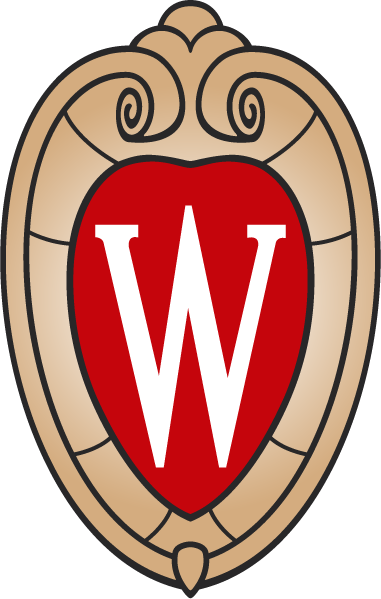
Course Overview
Become one of the more than 6,800 inspectors and construction engineers from the U.S. and Canada who have tuned up their skills at this practical course. This course delivers a comprehensive foundation in construction inspection, covering essential topics like contracts, materials, sewer and water systems, concrete and asphalt paving, and erosion control. Participants will gain hands-on knowledge of inspection methods, documentation practices, and communication strategies that ensure quality and compliance. Whether you're new to inspection or seeking a refresher, this course will help you become a more effective and confident professional.
Learning Outcomes
- Apply core engineering principles and inspection techniques to public works construction projects.
- Identify key inspection points for sewer, water, concrete, and asphalt systems to ensure quality and safety.
- Improve documentation, communication, and coordination with contractors and stakeholders.
Who Should Attend?
- Inspectors and engineering technicians new to the field or seeking formal training.
- Engineers and managers responsible for construction oversight or specification development.
- Public works personnel, lab technicians, and maintenance supervisors involved in inspection and quality assurance.
Course Outline
Online Course Schedule 2025
Live Session 1 Contracts, Plans, and Specifications: Framework for a Quality Project
Live Session 2 Inspecting Sewer and Water Construction
Live Session 3 Inspecting Sewer and Water Construction (Continued) and Storm Sewer Grading, and Storm Water BMP Inspection
Live Session 4 Concrete Pavement and Simple Public Works Concrete Structures - Key Inspection Points for Quality Concrete Pavements
Live Session 5 Solving Asphalt Pavement Construction Problems through Observation and Inspection and Inspection Documentation and Work Zone Traffic Control Inspection
In-person:
Contracts, Plans, and Specifications: Framework for a Quality Project
- The inspector’s role in quality
- Interpreting contract documents
- Knowing your authority
- Keeping good records
Asphalt Pavement Construction: Using the Inspection Checklist
- Characteristics of asphaltic concrete
- Pre-construction activities
- Paving equipment and methods
- Laying and compacting
- Test methods and results
Inspecting Sewer and Water Construction
- Pipe characteristics: stress, strength, failure
- Trenching, bedding, installation, backfill
- Manholes, connections, laterals
- Hydrants, valves, services
- Acceptance testing
- Documentation
Storm Sewer, Grading, and Storm Water BMP Inspection
Concrete Pavement Key Inspection Points for Quality Concrete Pavements and Simple Public Works Structures
- Desirable characteristics of concrete
- Pre-construction activities
- Paving and mixing equipment
- Test methods and interpretation of results
- Inspection during placing, finishing, and curing
- Post-placement inspection activities
Erosion Control Inspection: Installation, Inspection, and Maintenance
- Soil erosion basics
- Erosion and sediment control methods and materials
- Inspection and maintenance procedures and checklists
Work Zone Traffic Control Inspection
Testimonials
"Course covered all aspects of public works construction projects. Great for someone new like me to learn new things about construction inspection."
—Ryan Gundstrom, Public Works Engineering Technicians, City of Superior, Wisconsin
"Learned a lot and heard a variety of viewpoints on issues in construction inspection."
—James Buskohl, Public Works Construction Inspector, City of Johnston, Iowa
"All the instructors were very responsive to technical and layman's questions. They were also very good at explaining topics in plain English."
—Chad Rehahn, Lockheed Martin, Washington
Instructors
Benjamin Jordan
Benjamin J. Jordan, PE, is a program director with Interdisciplinary Professional Programs in the transportation sector. He has over 35 years of experience in civil engineering and public works. He earned a Bachelor of Science Degree in Civil Engineering from the University of Illinois at Urbana–Champaign and a Master of Public Affairs degree with a Certificate in Public Management from the University of Missouri-Columbia. He is a Licensed Professional Engineer in the State of Illinois.
Eric (RICK) Eilertson
Rick Eilertson, PE is a Municipal Project Engineer/Manager at AECOM. He has experience in municipal engineering and environmental engineering
Todd Nelson
Todd D. Nelson, PE, is an Associate Principal at Wiss, Janney, Elstner Associates, Inc. in Chicago, Illinois. He has over 25 years of experience specializing in troubleshooting, investigation, repairing of concrete distress and deterioration; specifying, proportioning, and testing of concrete. He serves on ASTM Committee C09 -Concrete and Concrete Aggregates, ACI Committee 360 - Design of Slabs on Ground and ACI Committee 302 - Construction of Concrete Floors. Mr. Nelson earned a Bachelor of Science in Civil Engineering from the University of Minnesota and is a licensed Professional Engineer in Illinois.
Upcoming dates (0)
Take this course when it’s offered next!
